- All
- Blog
- Events
- Press Release
- Videos
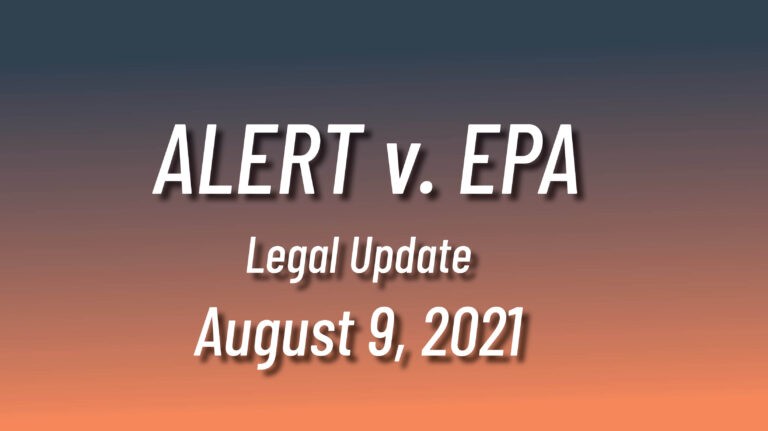
Court victory!
August 9, 2021. A federal district court ruled in favor of the public interest by ordering the U.S. Environmental Protection Agency (EPA) to update its decades-old regulations on the use of toxic chemical dispersants in oil spill responses. Specifically, the court ruled that EPA now has a mandatory “duty to update the NCP when there…
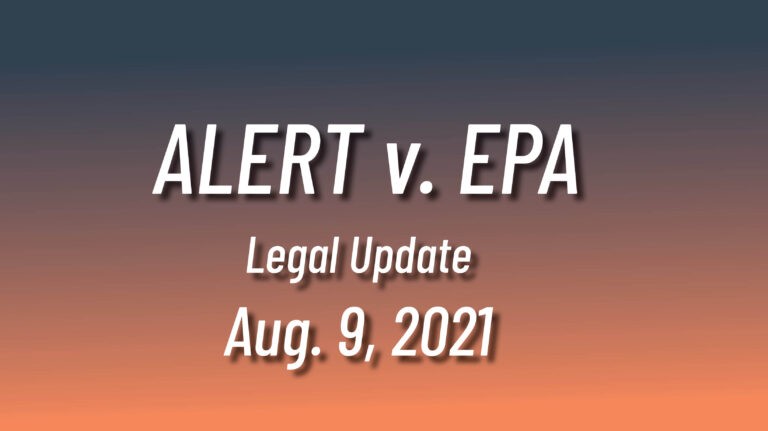
EPA pulls a fast one – Issues final rule on monitoring of “atypical dispersant use”
A federal district court ruled in favor of the public interest by ordering the U.S. Environmental Protection Agency (EPA) to update its decades-old regulations on the use of toxic chemical dispersants in oil spill responses. Specifically, the court ruled that EPA now has a mandatory “duty to update the NCP when there is…
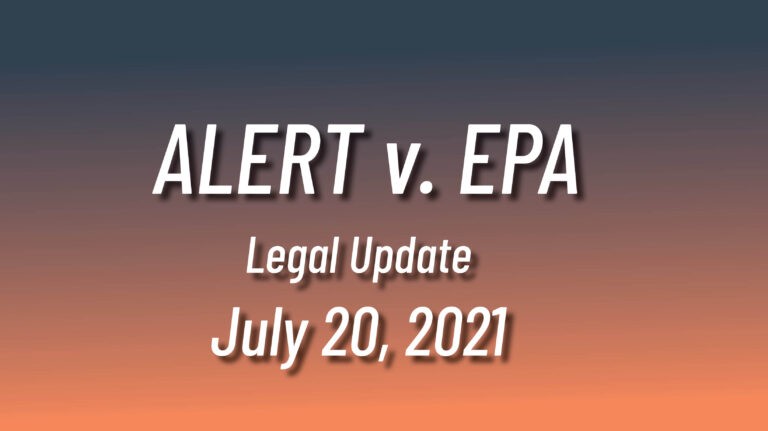
Judge leans in favor of ALERT at hearing on summary judgment
EPA files its opposition to ALERT’s MSJ and its own Cross-Motion for Summary Judgment May 20, 2021. In this dual-purpose filing, EPA first countered, and then asked the Court to deny, the plaintiffs’ requests for summary judgment on our unreasonable delay claim and our injunctive relief. Then EPA asked the court for summary judgment in…

ALERT files Motion for Summary Judgment
April 20, 2021. ALERT asked the court for summary judgment in our favor on the matter of the EPA’s unreasonable delay over finalizing rules governing dispersant use. We are also asking for injunctive relief – a Court order – to issue a proposed new rule within 90 days of the Court order, with the hope that EPA…
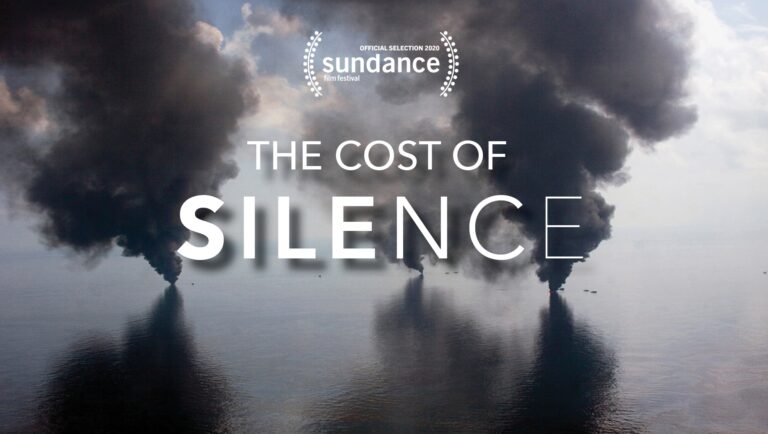
Screening: “The Cost of Silence” at Half Earth Day Festival (Oct. 25, 2020)
Filmmaker Mark Manning met Riki Ott, a marine toxicologist, in Louisiana in the summer of 2010, when the BP Deepwater Horizon was still gushing oil into the Gulf of Mexico. The disaster would become the largest oil spill in the U.S. at 221 million gallons. Over the next decade, Riki the scientist-activist and Mark the…
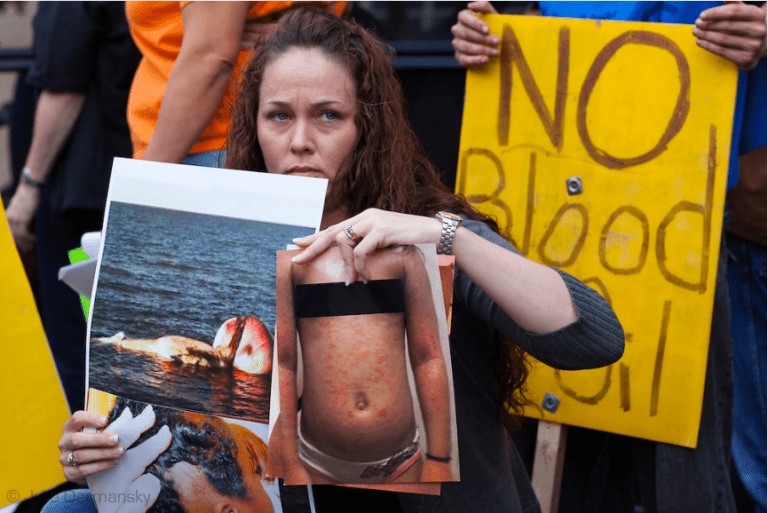
Petition to Bill and Melinda Gates — as shareholders of Ecolab — to help stop use and manufacture of toxic dispersants for oil spill response
Click here to sign the petition on Change.org Appeal to Bill and Melinda Gates — as shareholders of Ecolab — to help stop use and manufacture of toxic dispersants for oil spill response During a recent “cast” interview for the documentary A Concerned Citizen, now screening through the Global Peace Film Festival until…
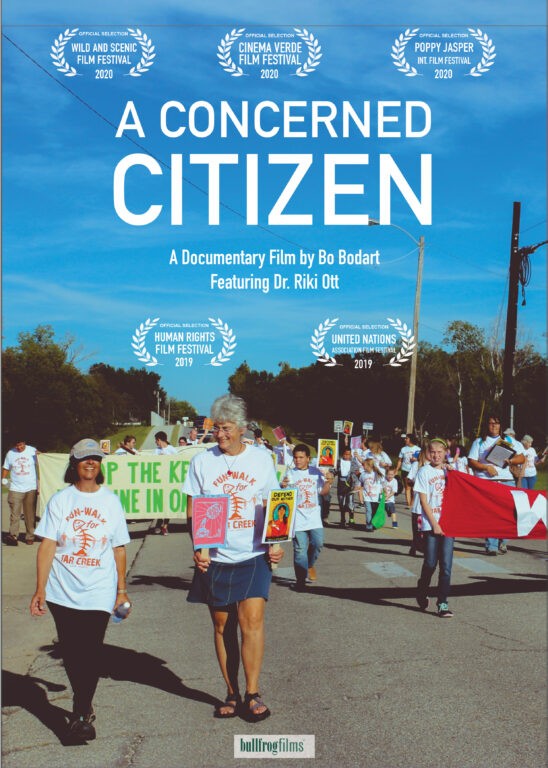
Screening: “A Concerned Citizen” at the Global Peace Film Festival (Sept. 21-Oct.4, 2020)
“A Concerned Citizen” documents the work of Dr. Riki Ott, a citizen activist who helped communities hit by the Exxon Valdez and BP Deepwater Horizon spills document long-term harm to people and wildlife and advance stronger national and state policies. Taking lessons she learned as an active concerned citizen, she developed the Ultimate Civics curriculum…
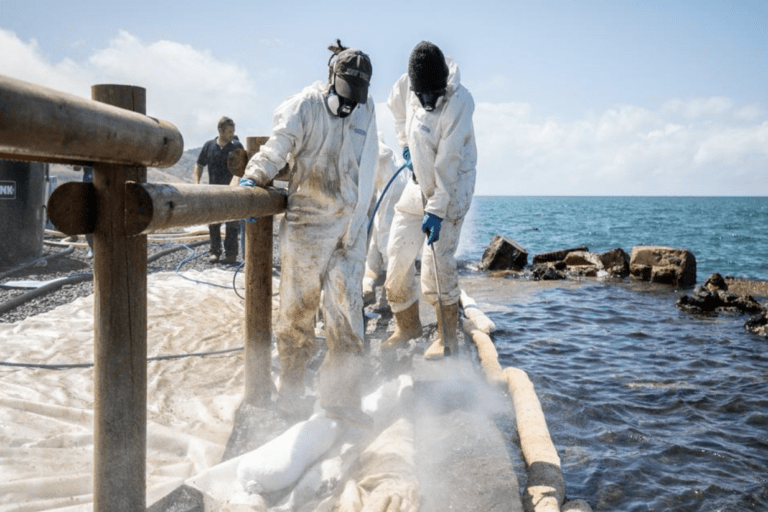
Forbes: Would The Use Of Chemical Dispersants In Mauritius Oil Spill Be Considered An Ecocide?
Read the article: https://www.forbes.com/sites/nishandegnarain/2020/09/13/would-the-use-of-chemical-dispersants-in-mauritius-oil-spill-be-considered-an-ecocide/#69a98a035a6d
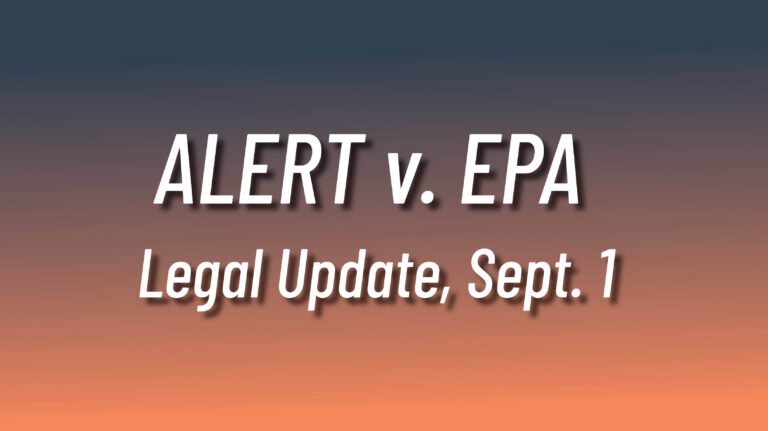
Court Rejects Reconsideration: Stays the Course
September 1, 2020. The District Court rejected EPA’s motion to reconsider its motion to dismiss the court’s earlier landmark ruling that required EPA to keep the nation’s oil spill response plans current and effective. In the September ruling, the Judge wrote that “EPA’s arguments amount to an improper repetition of the arguments that it made…
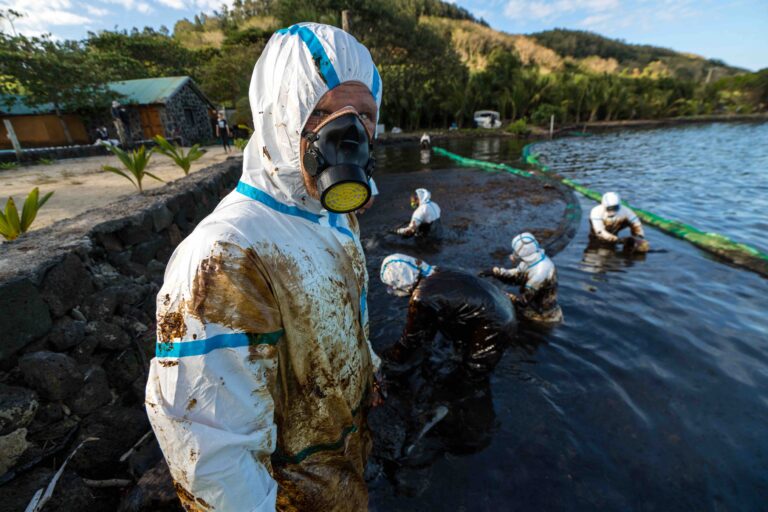
Webinar: Short-and long-term human health impacts of the Wakashio Oil spill (Aug. 25, 2020)
On August 25 at 12:30 PM EDT, Dr. Riki Ott participated in a free webinar panel discussion of short-and long-term human health impacts of the Wakashio oil spill in the Indian Ocean Island of Mauritius. This spill could be a game-changer for use of heavy fuel oil to propel the majority of large ships…
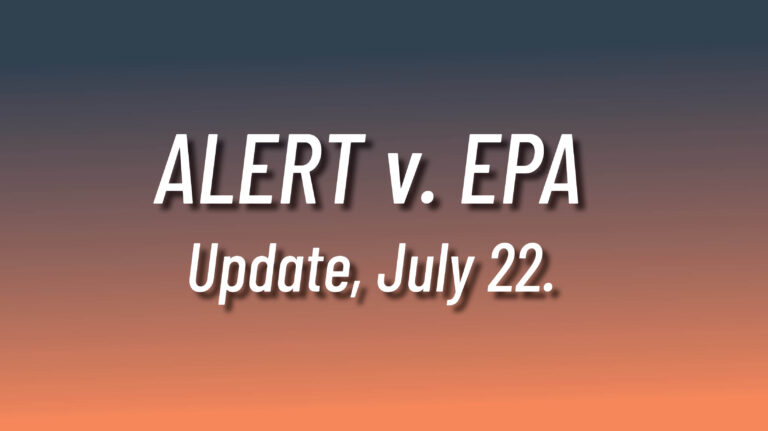
EPA stalls case
EPA filed a motion requesting that Judge Orrick reconsider his reasoned ruling on our Clean Water Act claim. EPA claimed that the Judge did not specifically address various issues it raised in its motion to dismiss our case. However, the Judge’s written opinion and the hearing transcripts both show that these issues were in…
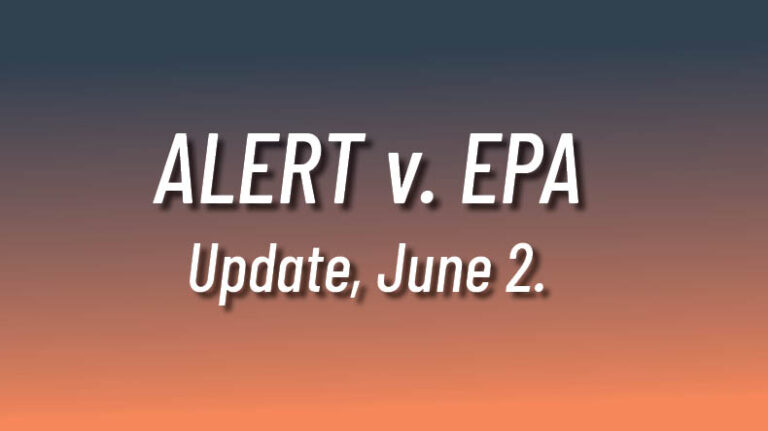
ALERT v. EPA makes law! Ruling a “game-changer”
June 2, 2020. U.S. Magistrate Judge William Orrick ruled that the Clean Water Act requires the EPA to keep the nation’s oil spill response plans current and effective. New research has linked chemical dispersants, heavily used during the 2010 BP spill response, with long-term illnesses in humans and wildlife. The EPA has failed to consider…
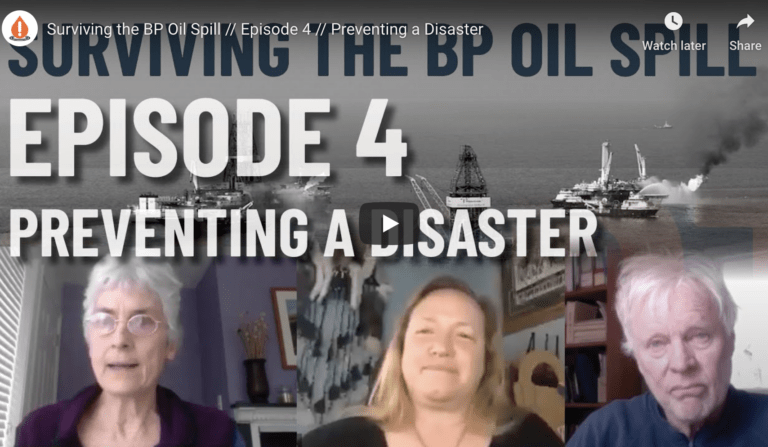
Surviving the BP Oil Spill // Ep. 4 // Preventing a Disaster
In episode four, Dr. Ott hosts guests Lynda Zambrano and Rick Steiner, who discuss civic actions we can take right now to change unsafe, outdated oil spill policies and to build local capacity within communities to minimize harm during oil disasters. Lynda Zambrano of the Tulalip Nation, organized the first Tribal Emergency Response Council on…
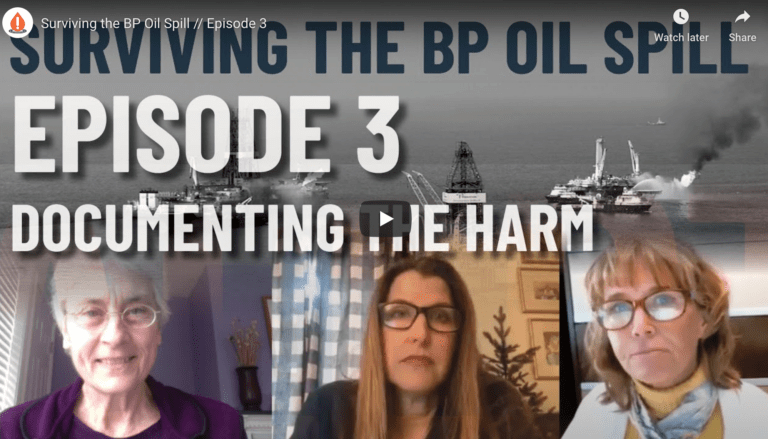
Surviving the BP Oil Spill // Ep. 3 // Documenting the Harm
For episode 3, Riki Ott hosts those who have dedicated years to documenting the human health impacts of the BP oil spill. This weeks’s guests include: Lesley Pacey, a Mobile Register reporter whose daughter Sarah was diagnosed with acute lymphocytic leukemia at age 4 in 2004. Since Sarah’s diagnosis, Pacey founded and directs the Eastern…
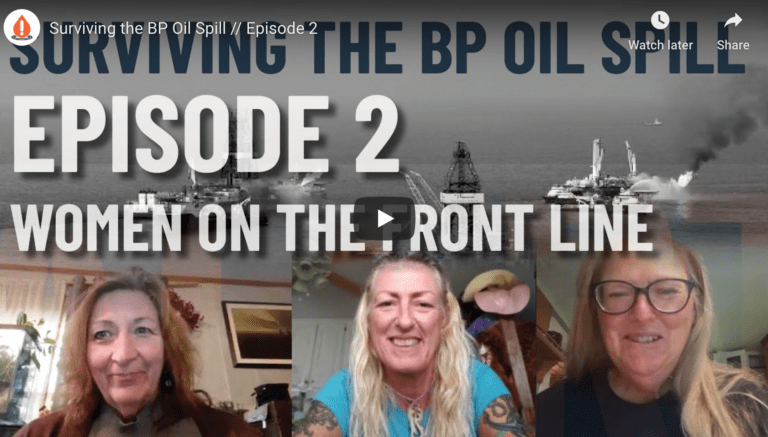
Surviving the BP oil spill // Ep. 2 // Women on the front line
For the second episode of our series, “10 Years Surviving the BP Oil Spill” Dr. Riki Ott joins residents of coastal communities in Alabama and western Florida: Captain Lori DeAngelis, who ran dolphin viewing charters before and after the BP oil disaster in western Florida and has experienced physical and mental health trauma as her…
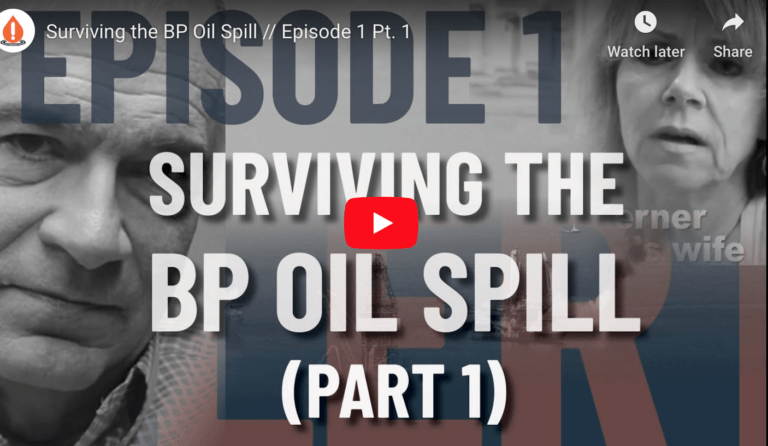
Surviving the BP Oil Spill // Ep. 1 // Louisiana First Responders
Throughout the 10th anniversary month of the BP Deepwater Horizon oil spill, we are hosting a series of live interviews to raise awareness about the ongoing suffering and chronic illnesses of those who lived and worked near the disaster. Studies now show that chemicals used by the government to “clean up” the spill form a…
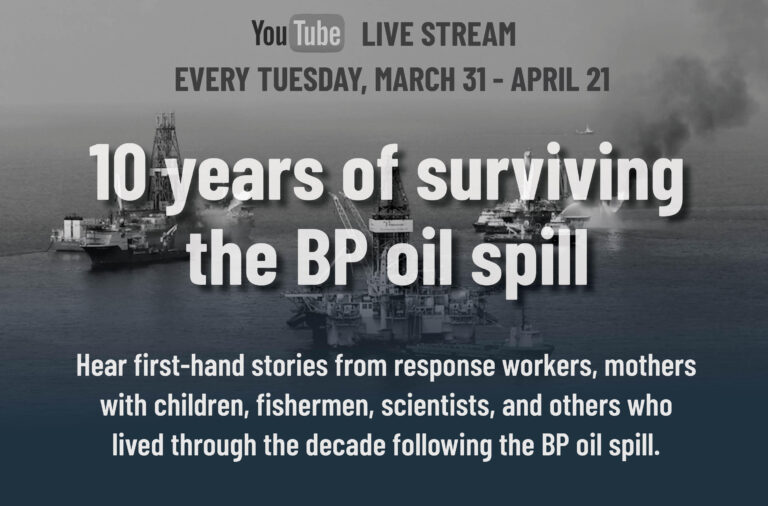
Live Stream Premiere! BP Oil Spill Survivors Tell Their Stories (March 31, 2020)
Episode 1, March 31 Dr. Riki Ott will join first responders — Louisiana residents who were part of the initial response to the 2010 BP oil disaster and who are now suffering from life-threatening illnesses — to demonstrate that current practices in the U.S oil-spill response plan are unsafe and endanger the health of…
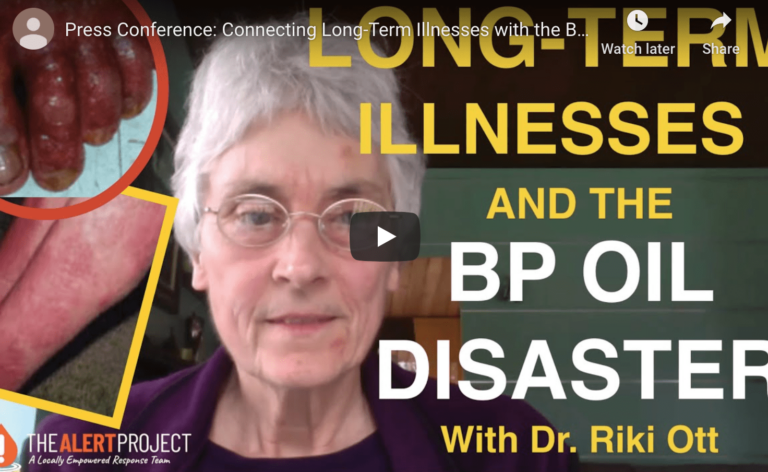
Press Conference: Connecting the Dots Between Long-Term Illness and the BP Oil Spill
In anticipation of the anniversary date of the 2010 BP oil spill, Marine Toxicoligist and environmental activist riki ott held a press conference on March 25, 2020, to break down the scientific evidence linking oil dispersants (used on oil spills) to long-term illness in communities surrounding oil disasters.
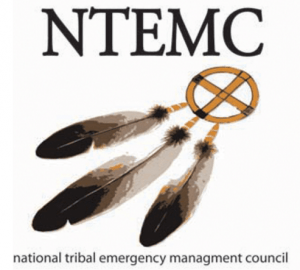
Tribal Emergency Response Training (June 14, 2020) CANCELED
Canceled due to COVID-19 After presenting at The National Tribal Emergency Management Council (NTEMC) annual conference in Wisconsin in 2019, Dr. Riki Ott was invited to conduct a workshop on Oil Spill Preparation and Response for Response Workers and Leaders of Tribal Communities in the Pacific Northwest at the Northwest Tribal Emergency Management Council Regional Conference,…
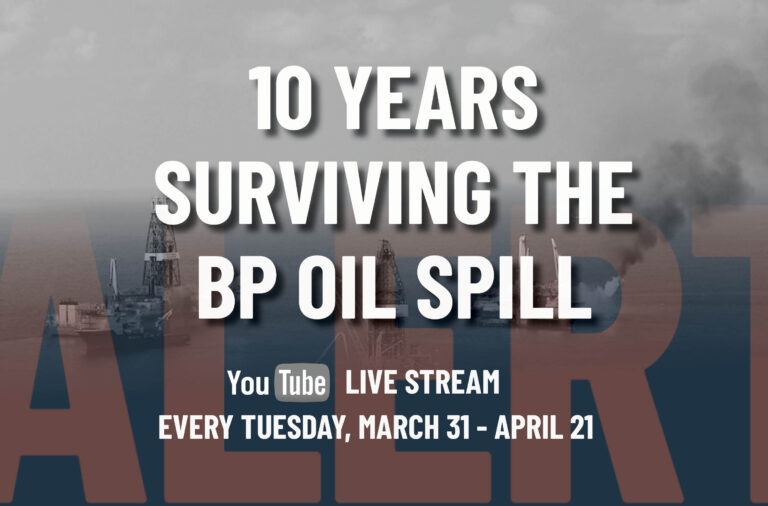
ALERT to interview Gulf residents for British Petroleum (BP) oil disaster memorial during April
Our series of live streams “Gulf voices & why we need to listen,” is part of our project to expose long-term illnesses and deaths following the BP oil disaster and highlight the urgent need for national policy reform. Ten years since British Petroleum’s Deepwater Horizon oil spill, hundreds of thousands of people may be suffering from long-term illnesses. Thousands…
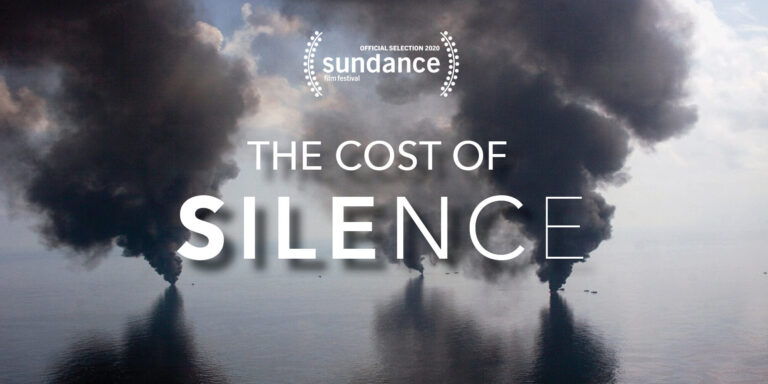
ALERT featured in ‘The Cost of Silence’ — Official Selection of the Sundance Film Festival
“The Cost of Silence,” Mark Manning’s new film documenting widespread and still ongoing human illnesses in the aftermath of the 2010 BP oil spill, and featuring ALERT’s work, premiered as an official selection of the Sundance Film Festival on Jan. 27, 2020 in Park City, Utah. National Resource Defense Council, in partnership with Entertainment Weekly featured ALERT…
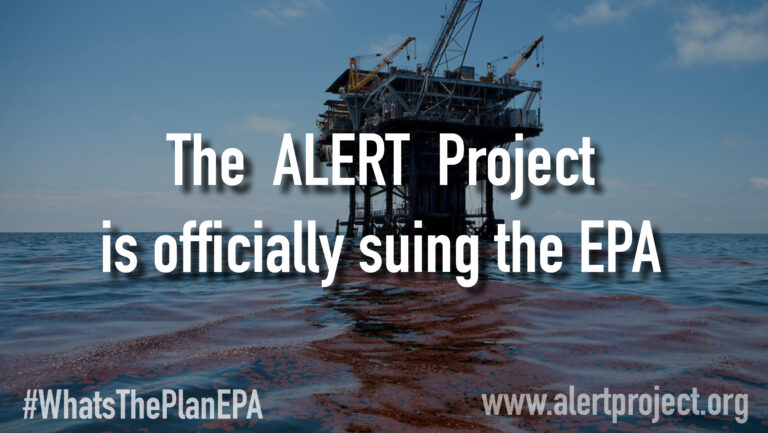
ALERT announces lawsuit against the Environmental Protection Agency
After eight years of preparation and waiting, The ALERT Project has officially sued the U.S. Environmental Protection Agency (EPA) over its outdated National Contingency Plan, the nation’s emergency response plan for oil spills. The Plan was last updated in 1994 – 26 years ago. Oil companies are supposed to have viable plans to respond…
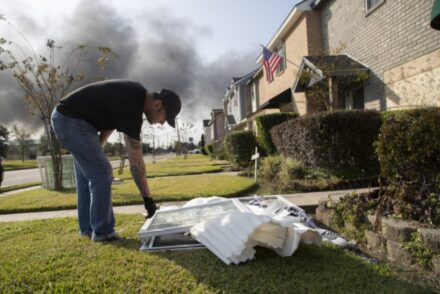
Cancer causing Oil-Chemical Pollutants for making rubber and plastic release into the air during explosion in Texas
On November 27, 2019, residents in southeast Texas experienced a devastating public health threat when a 218-acre TPC petrochemical plant blew up in Port Noches, Texas. (Photo credit: NBCNews.com) The plant produces flammable toxic chemicals: raffinate, a petroleum gas, and butadiene, which is used in the production of plastics and synthetic rubber for tires. For…
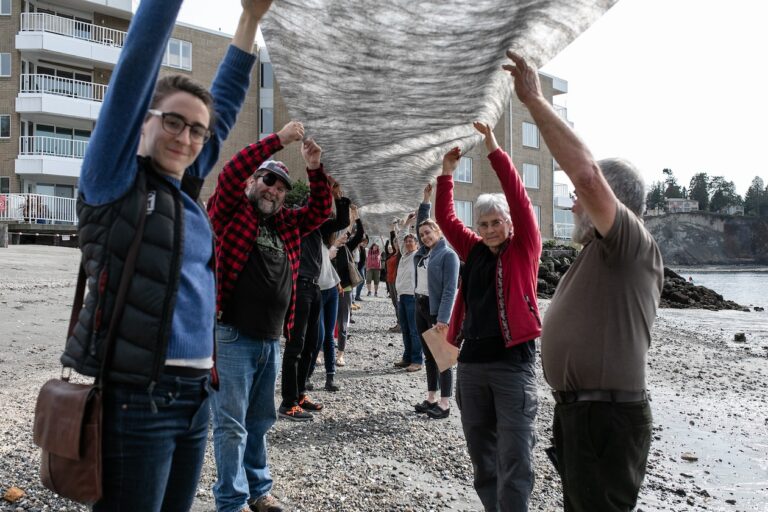
ALERT takes new legal action with the EPA
It’s said that maritime law is written in blood or oil—after disasters rather than before them. The same can be said of our nation’s emergency oil and chemical disaster response plan, the National Contingency Plan (NCP or the Plan).Our campaign to ban toxic dispersants from use during oil spill response started after the Exxon Valdez disaster…
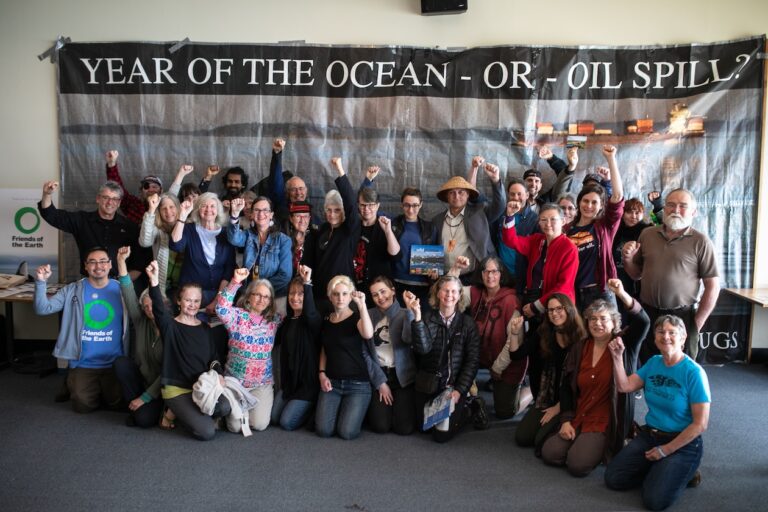
Riki Ott commemorates the 30th anniversary of Exxon Valdez oil spill in solidarity with Heiltsuk First Nation lawsuit
Thirty years ago on March 24, 1989, the Exxon Valdez grounded on Bligh Reef in Prince William Sound, Alaska, spilling 11 million gallons of crude oil into the ocean. This set off a chain of events that still informs decisions and actions today by government, courts, the oil industry-and by people who don’t want the…

BP Deepwater Horizon Medical Victims Deserve Justice
On the eighth memorial of the BP disaster, let’s support the individuals and communities sickened by the BP disaster and by multiple system response failures. In this ongoing nightmare, we can work toward justice for BP victims and their families and toward system-wide accountability to avert similar tragedies in the future. Hundreds of thousands of…
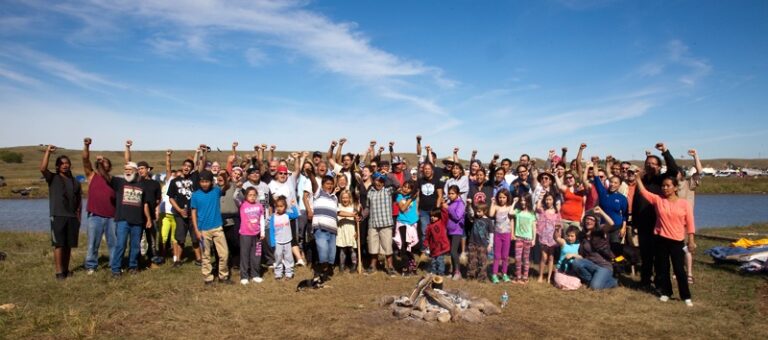
Standing in Solidarity Against the DAPL
ALERT received requests for basic information about the Dakota Access Pipeline (DAPL) from allies who are standing with the Standing Rock Sioux Nation to support their 1868 treaty rights to protect their land and water. The Fort Laramie Treaty – like every other treaty with Native American Tribes – has been broken by the United…
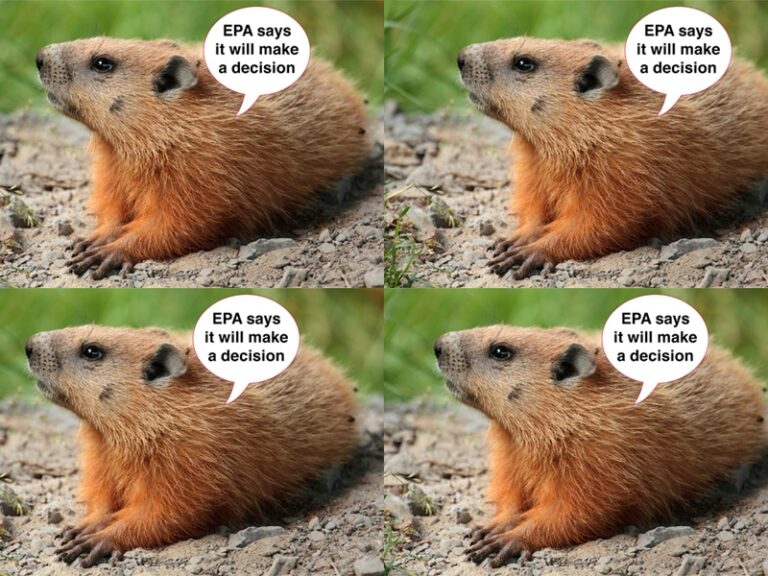
Groundhog Day: EPA Postpones Decision on Dispersants & What You Can Do About It NOW
Ever feel like you’ve heard the exact same thing before? In April of 2015, EPA promised to make a decision on rules regarding dispersant use in oil spill response in the fall of 2016. Now EPA has decided to postpone the final rules until August 2018 at the earliest. Sounds like the same old, same…

Introducing Toxic Trespass – A new teaching tool
Mobile, Alabama. For the past three months, an alliance of oil-spill survivors, academics, trained first responders, fence-line and frontline community residents, and community organizers in Houston, Mobile, and Coden, Alabama, have worked with ALERT, myself and Emily L. Harris, to develop a concept and a course. Toxic Trespass is the first in a series of…

What’s Next for U.S. EPA Rulemaking on Dispersant Use?
Canada’s move to legalize toxic dispersants may thwart efforts to ban them in the United States, because the two countries work together to “harmonize” environmental (and other) policies. ALERT has requested that U.S. EPA take proactive international action to ban toxic dispersants in oil spill response. Help ALERT leverage our comments into final rules by…
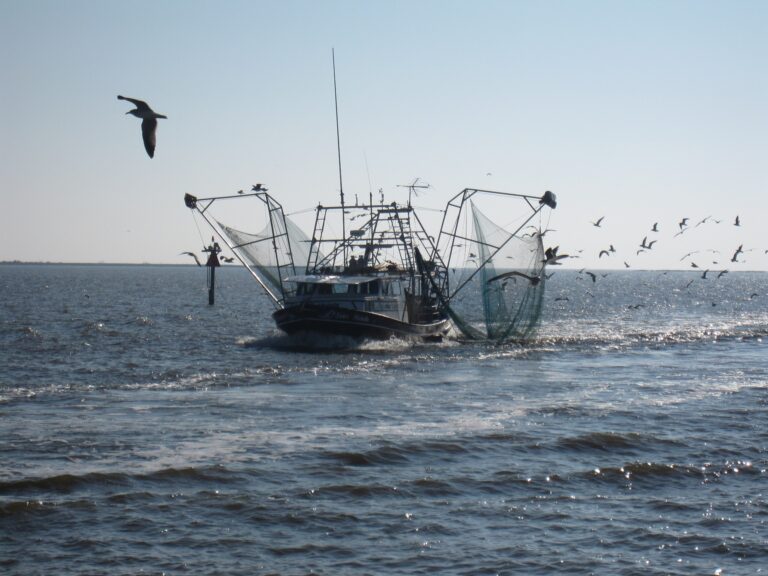
WEBINAR: Spill Voices Calling for Stronger Oil Spill Response
Wednesday, April 1, 2015 at 1:00 Eastern Time CLICK HERE to register. EPA is taking public comment on its proposed new rules governing the use of dispersants and other chemical and biological products on oil spills in U.S. waters until April 22. The proposed rules have huge implications for spills in fresh water, the Arctic,…
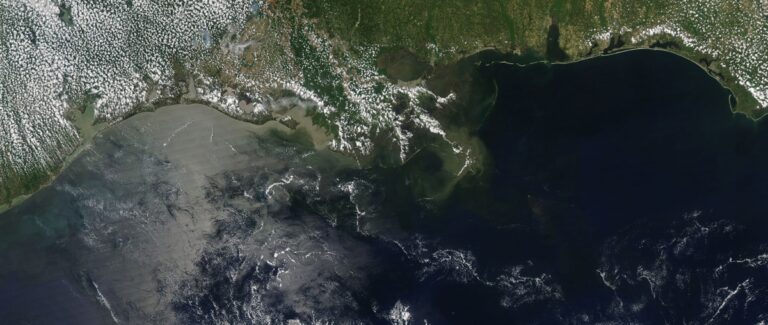
\Webinar: What’s the Plan? 10 Key Points of the National Contingency Plan for Oil Spills (March 25, 2015)
If you sink oil, you sink oil. If you make it harder to remove, you make it harder to remove. It doesn’t matter whether or not the oil hits the bottom of the ocean “deliberately.” Join Riki Ott, PhD, Wednesday, March 25th for an online discussion on the categorization of “clean-up” agents used in oil…
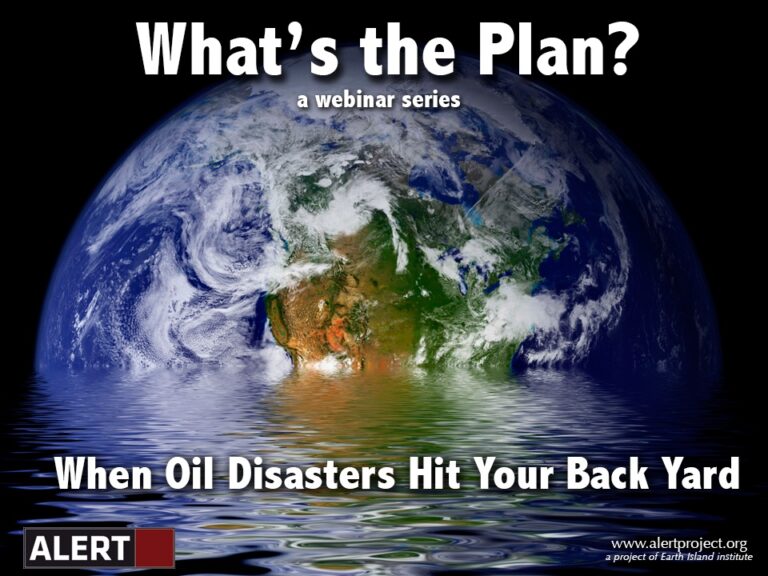
Webinar: What’s the Plan? Oil Disasters in Your Backyard (March 11, 2015)
ARCHIVED WEBINAR You’ve seen the news: Explosions. Toxins running down the rivers we drink from. Wildlife coated in black sludge. Trains, boats, and pipelines run through our neighborhoods all across the nation. Do you know who’s responsible in your area when oil spill disaster occurs? Or if there’s even an Area Contingency Plan? Join Riki…
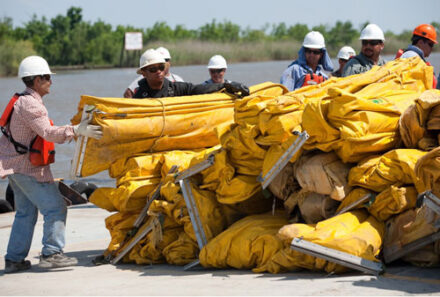
What’s the Plan? A Webinar Series (March 11-25, 2015)
Long-awaited Public Comment Period Opens It’s been 21 years since the EPA considered the rules that govern Oil Spill Response. In that time, our technologies have advanced significantly, while the rules surrounding them remained unchanged. Dangerous dispersants, unconventional oil and gas, and risky transportaion methods have created perilous, sometimes deadly, situations. NOW IS OUR OPPORTUNITY…

WATCH: Legal Framework of EPA Rulemaking – Julia LeMense, JD, LLM, MPH
Julia LeMense provides an overview of the environmental and disaster management legal framework. This framework provides the statutory authority and rationale for all emergency environmental planning and response activities, including the National Contingency Plan and subpart J, which is the subject of the EPA’s rulemaking and this series of webinars. Click here to view the…
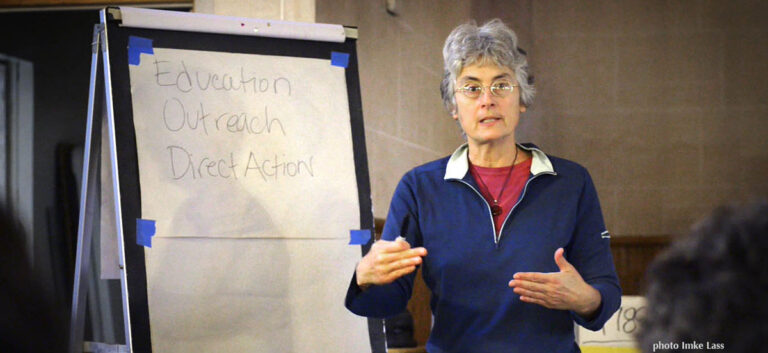
WATCH: Shaping EPA Policy in Oil Spill Response – Riki Ott, PhD
Riki explains the rulemaking process, describes the focus of this rulemaking, and addresses key new or revised rules and their anticipated impact on the environment and public health. She also discusses areas of gaps and some of ALERT’s recommendations. Click here to see the webinar. Dr. Riki Ott witnessed first-hand the ecological destruction and social…

Tulane Summit On Environmental Law And Policy Panel on EPA Rulemaking
Contact: Lisa Marie Jacobs 970-903-6818 [email protected] February 23, 2015 MEDIA ADVISORY – FOR IMMEDIATE RELEASE Tulane Summit On Environmental Law And Policy Adds Panel on EPA Rulemaking Panel title: Shaping EPA policy on oil spill response Use of dispersants, chemical and biological agents, and other substances to be discussed On Friday, February…
- « Previous
- 1
- 2
- 3
- Next »

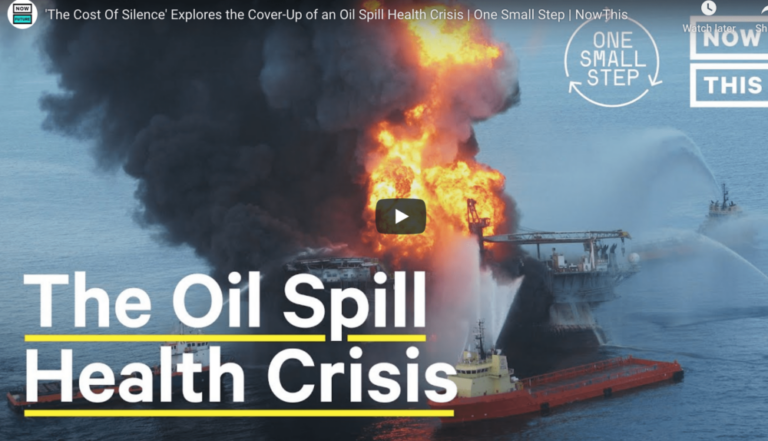
What’s next on the EPA’s rulemaking process
First of all, congratulations! The EPA received 487 comments on its proposed rulemaking on use of dispersants and other products during oil spill response. ALERT, a handful of other groups, and over 460 ordinary citizens––many empowered by ALERT’s webinars, talking points, and social media—filed a total of 472 comments. Each commenter can opt to join…